Filter by
Anxiety Medicine for Dogs
Anxiety can be just as debilitating for dogs as it is for humans, resulting in a range of unwanted behavioral and physical symptoms. Anxiety medicine can ease your dog’s anxiety symptoms and improve their overall well-being.
-
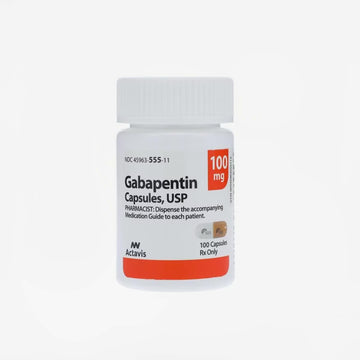
Gabapentin (Rx)
$0.28 / unit
Multiple options available
-
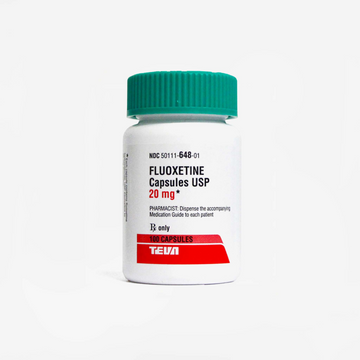
Fluoxetine (Rx)
$0.22 / unit
Multiple options available
-

Trazodone (Rx)
$0.30 / unit
Multiple options available
-

Cerenia (Rx)
$5.74 / unit
Multiple options available
-

Purina Pro Plan Veterinary Supplements Calming Care - Calming Dog Supplements
$33.99 / unit
-

Clomicalm (Rx)
$1.99 / unit
Multiple options available
-

Reconcile (Rx)
$0.48 / unit
Multiple options available
-
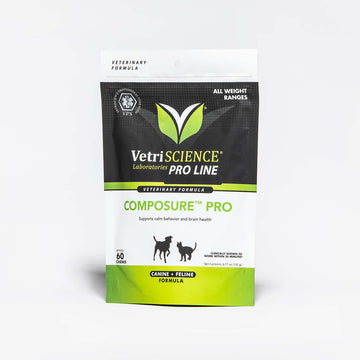
VetriScience Composure Pro
$34.99 / unit
-
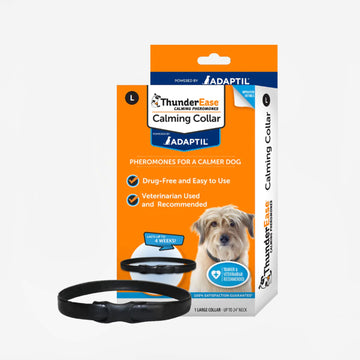
ThunderEase Calming Collar for Dogs
$19.99 / unit
Multiple options available
-

Sertraline Tablets (Rx)
$7.59 / unit
Multiple options available
-

VetriScience Composure Pro Advanced
$47.99 / unit
-

Promace (Acepromazine) Tablets (Rx)
$27.67 / unit
Multiple options available
-

ThunderEase Calming Diffuser Kit
$24.99 / unit
-
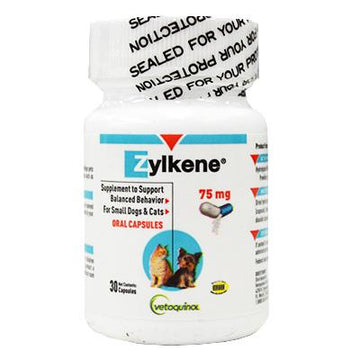
Zylkene Capsules for Cats & Dogs
$37.99 / unit
Multiple options available
-
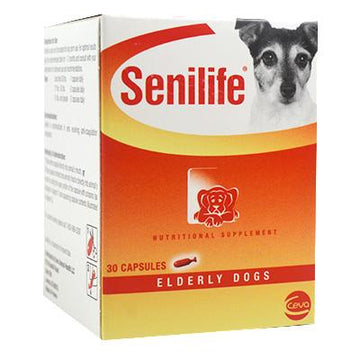
Senilife Capsules for Elderly Dogs
$43.09 / unit
-
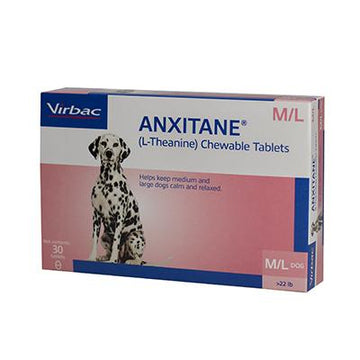
Anxitane Chewable Tablets for Cats & Dogs
$43.69 / unit
Multiple options available
-

ThunderEase Calming Diffuser Refill for Dogs, 30 day
$19.99 / unit
-
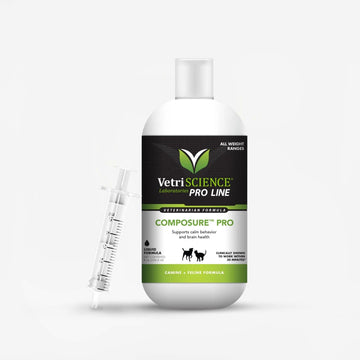
VetriScience Composure Pro Liquid
$63.65 / unit
Frequently asked questions
What are the signs that my dog is anxious?
What are the signs that my dog is anxious?
As a pet parent, it can be difficult to tell whether your dog has anxiety. Not only can dog anxiety manifest itself in several ways, but many of its symptoms can indicate other underlying health issues. Depending on the cause of your dog’s anxiety and its severity, they may experience an entirely different set of symptoms as well.
Here are common some signs of dog anxiety to look out for:
- Excessive barking
- Pacing
- Restlessness
- Increased vigilance
- Panting
- Drooling
- Depression
- Repetitive or compulsive behavior
- Weight loss
- Urination or defecation in the house
- Destructive behavior
- Changes in sleep schedule
What is the best anxiety medicine for dogs?
What is the best anxiety medicine for dogs?
When it comes to the best anxiety meds for dogs, a veterinarian is your best resource. They can help you rule out other potential illnesses, identify the type of anxiety your dog is experiencing, and determine whether your dog would benefit from dog anxiety medication.
Here are some regularly prescribed anti-anxiety meds for dogs:
- Fluoxetine: As an SSRI, fluoxetine increases a dog’s serotonin levels, helping them stay calmer and less anxious.
- Clomicalm: Clomicalm is an antidepressant that reduces anxiety-related symptoms and destructive behaviors.
- Gabapentin: Also used for neuropathic pain, gabapentin soothes the nervous system so it doesn’t overreact.
Speak with a Dutch vet if you have questions about any anxiety meds for dogs. We can help diagnose your dog’s anxiety triggers and prescribe medication that’s best for them.
What over-the-counter anxiety medication can I give my dog?
What over-the-counter anxiety medication can I give my dog?
Never give your dog over-the-counter anxiety medication before consulting a vet. Human medication may not be safe for dogs, and if they are, vets can help you determine the accurate dosage.
The best thing you can do for your dog with anxiety is to get an accurate diagnosis so it can get the help it needs. Dutch online vet care provides your pet with customized treatment plans for various health issues. Other than dog anxiety medication, we also prescribe vomiting medicine for dogs, diarrhea medicine for dogs, and more.
In addition to anxiety medication, what can I do for my dog?
In addition to anxiety medication, what can I do for my dog?
Anxiety in dogs is a very complex issue, so it’s best to use a combination of treatment methods. In addition to anti-anxiety meds for dogs, creating an environment that is more conducive to your dog’s needs and modifying its behavior are effective ways to treat dog anxiety as well.
Work with a Dutch vet to learn the proper behavioral modification techniques, or take a look at our pet care kit for products that can improve the overall health of your pet.



















